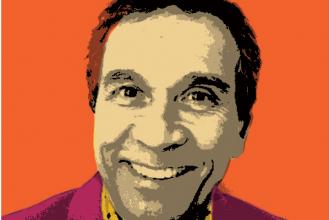Proust questionnaire: Francis Law, MD
Dr Law is a clinical professor in the Department of Ophthalmology and Visual Sciences at the University of British Columbia.
Dr Law is a clinical professor in the Department of Ophthalmology and Visual Sciences at the University of British Columbia.
What profession might you have pursued, if not medicine?
A chef or carpenter.
Which talent would you most like to have?
To be able to sing, well enough to perform in a Mozart opera at the Met.
What do you consider your greatest achievement?
Having three beautiful and intelligent children.
Who are your heroes?
My father.
What is your idea of perfect happiness?
A bottle of 1961 Chateau Petrus, with a pre-Castro Cuban cigar, in Paris.
What is your greatest fear?
To die alone.
What is the trait you most deplore in yourself?
Jumping to conclusions.
What characteristic do your favorite patients share?
A sense of humor.
Which living physician do you most admire?
My teachers, whom I can thank when I see them.
What is your favorite activity?
Reading the Sunday New York Times and any novels I can get my hands on.
On what occasion do you lie?
Would you believe me if I tell you?
Which words or phrases do you most overuse?
Not appropriate for this publication.
What technological medical advance do you most anticipate?
Stem cells… all the way.
What is your most marked characteristic?
Flight of ideas.
What do you most value in your colleagues?
Honesty and loyalty.
Who are your favorite writers?
Matthew, Mark, Luke, and John.
What is your greatest regret?
My impatience.
How would you like to die?
Surrounded by my loved ones, after a cigar and a glass of Bordeaux, in my sleep, in Paris.
What is your motto?
Let’s fix this problem!
hidden
The Proust Questionnaire has its origins in a parlor game popularized by Marcel Proust, the French essayist and novelist, who believed that, in answering these questions, an individual reveals his or her true nature. To submit a Proust Questionnaire visit https://www.bcmj.org/content/contribute.

